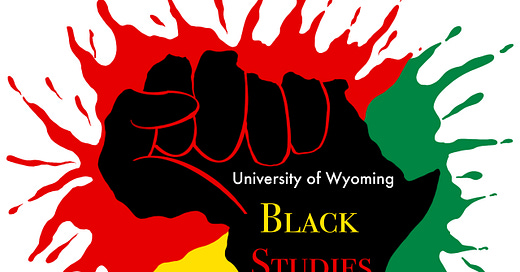UW Black Studies Director: Juneteenth a time for reflection and reckoning
University of Wyoming Assistant Professor Fredrick Douglass Dixon said the newly recognized federal holiday is being commercialized, and the message of the holiday is getting lost in the marketing.
When you think of a federal holiday, what do you imagine? A day on the water with your kids, a long weekend? How often do you ponder the history behind the holiday?
Juneteenth was created to celebrate and recognize the Emancipation Proclamation. It has been recognized in history as the day that Union General Gordon Granger made it to Galveston, Texas with news of the Emancipation Proclamation at the end of the Civil War. It has been gained popularity and state recognition since then and was made a federal holiday last year.
Fredrick Douglass Dixon helms UW’s Black Studies Center, which was created in response to the murder of George Floyd in 2020. The Center hosted a Juneteenth event Saturday, but Dixon said Juneteenth is not just a celebration.
This year is the first that Juneteenth is recognized as a full-fledged federal holiday, but Dixon said the holiday has already been commercialized.
For example, Dixon pointed to Walmart creating and selling a Juneteenth ice-cream featuring a yellow, red, green, and black labeling. Separately, the Indianapolis Children’s Museum sold a Juneteenth salad; the contents were watermelon. The marketing of both have received a fair share of backlash.
“Business as usual, and profit of course,” Dixon said, adding the history of the holiday is dissipating.
It’s akin to what’s happened with Martin Luther King, Jr. Day and Christmas, Dixon said. The meaning gets lost within the holiday marketing.
“They are marginalizing Martin Luther King, Jr. to a term,” Dixon said.
Instead, Dixon said people should learn more, and more accurate, history about the Trans-Atlantic slave trade. He said Juneteenth provides only a limited scope for discourse on the current state and past realities of race division in the country.
Juneteenth should be seen, Dixon said, as a critique of current suppression of injustices as well as the history that have been watered down to be more palatable to white learners and audiences.
Juneteenth could be a time for studying how the Emancipation Proclamation meant different things in the north and south, and that it took time for that legal declaration to start being enforced across the south. Juneteenth could also draw attention to the relationships between slave masters and the people they enslaved.
Some slaves, for example, Dixon said, began to believe that if they were more docile, it would make them more human. That’s an uncomfortable reality seldom discussed.
“The conversation is where the power lies, to transform current narrative,” Dixon said.
He said, amid the United States’ modern reckoning with its racist past, institutions and current inequalities, we need more voices to advocate for diversity and equality, as well as a light to be shown on those “villains” who made and make the fight for equality necessary.
Racist attacks are not some far-off hypothetical for those in the Black Studies Center.
The center received death threats prior to the Juneteenth event it hosted last year; its Black History Month events in 2021 were also Zoom-bombed with racist, violent and pornographic images. Dixon said he is concerned for the future of the program and any Juneteenth event that may be held.
“Keep a critical eye not for those who show up, but those who do not.” Dixon said.





